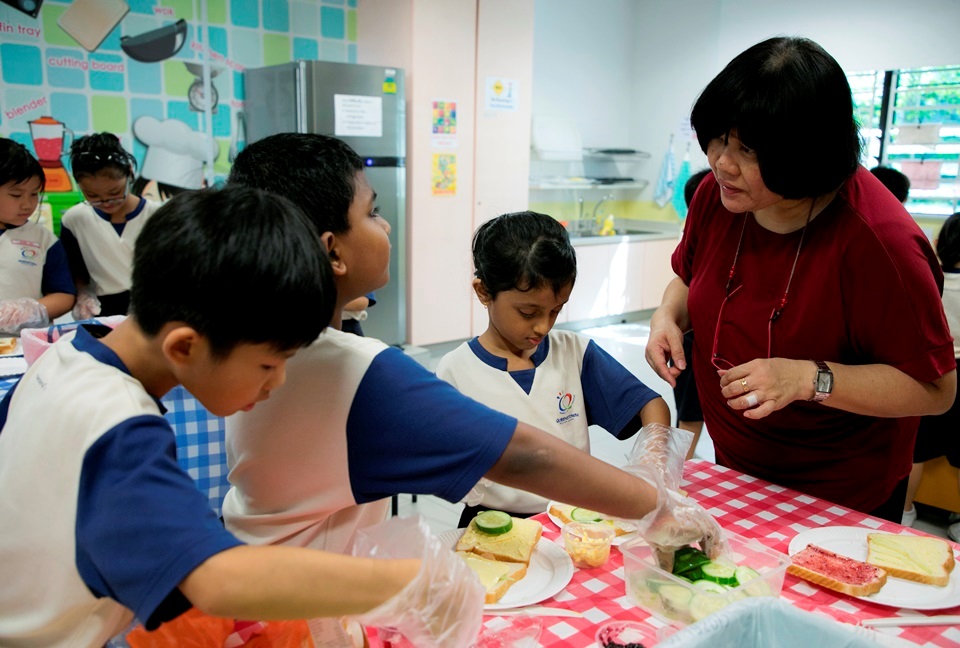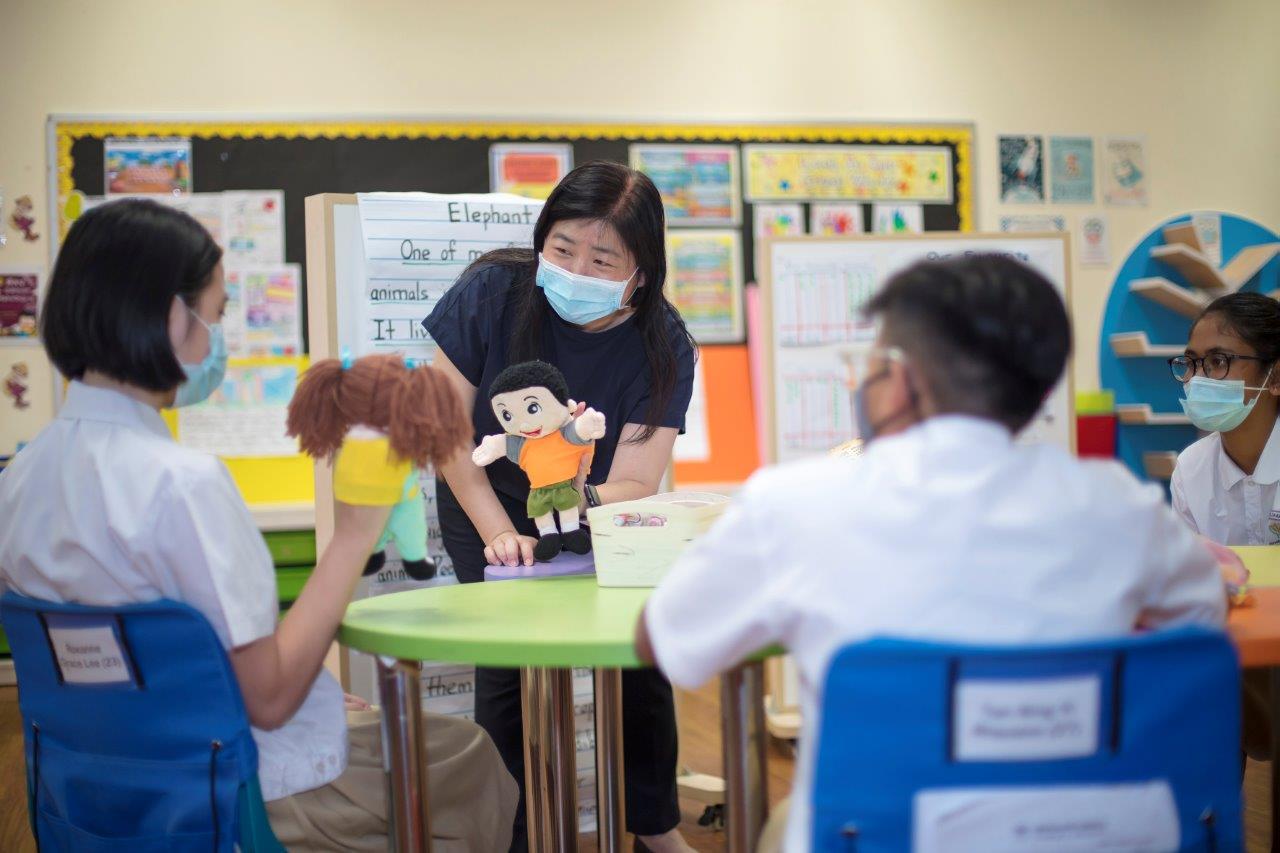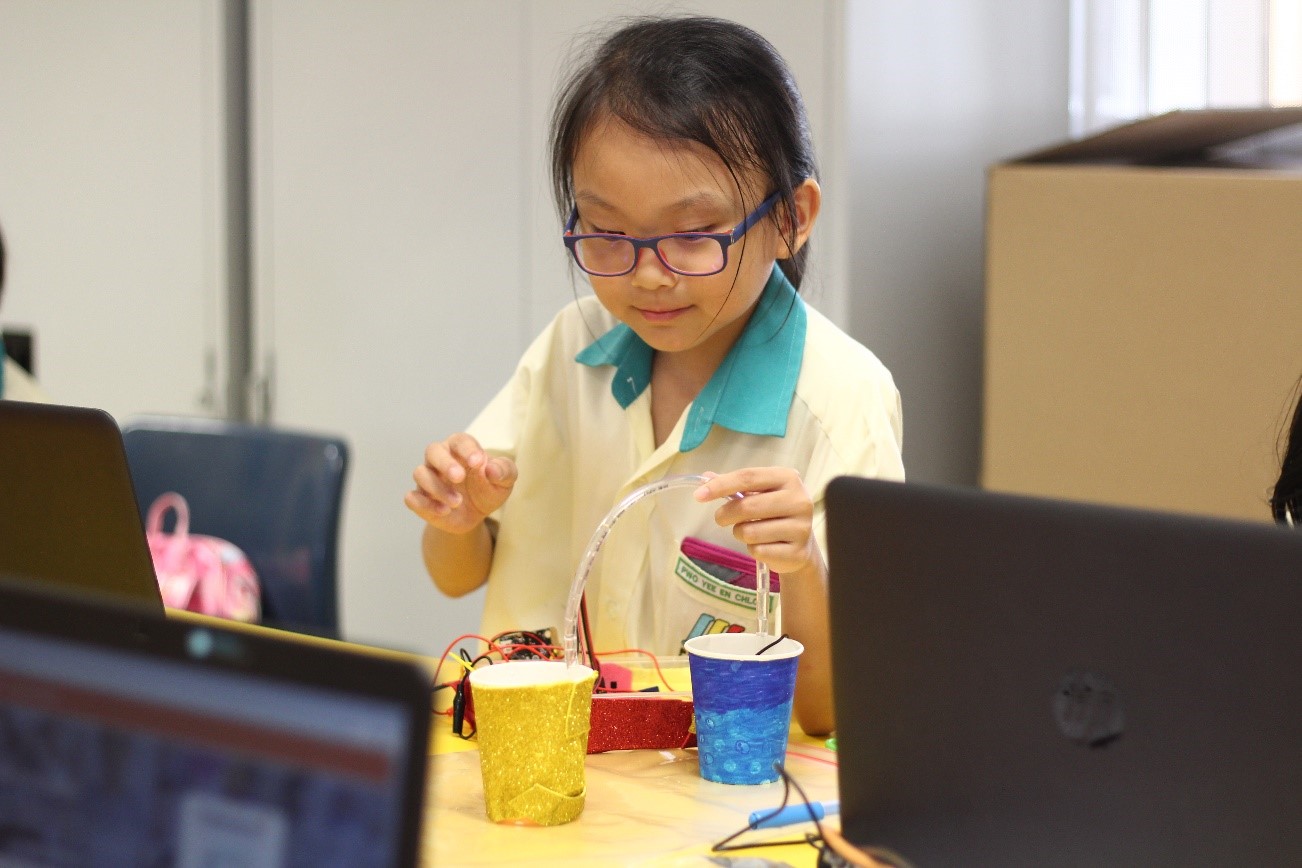These days, learning in a classroom is not quite the same as what many of us would remember. Join a class of 8-year-olds at Queenstown Primary, for their English lesson…in a kitchen!
But, why kitchen? How does it help children learn? Here’s their story in pictures.

Children love a good story. Senior Teacher Mdm Joyce Kang draws the class into the humorous story of a Monkey who tried to share a bowl of chicken rice with his friend, Chicken.
Teachers can pick from a variety of STELLAR Big Books to customise their programmes to suit the learning needs of their students. Find out more about the STrategies for English Language Learning And Reading (STELLAR).

After reading the book, Mdm Kang explained language concepts such as vocabulary and prepositions. When asked to point out and explain individual words, the children jumped at the opportunity to get involved.

She’s piqued their interest, but Mdm Kang has another trick up her sleeve – a kitchenette experience! To help Monkey apologise to his friend, Chicken, the students were asked to make an Apology Sandwich.
But this isn’t a cooking lesson. It’s an opportunity for students to review the words they had read, extend their vocabulary beyond what they learnt in the Big Book, and have a shared experience to think and talk about.

Students checked out the available ingredients and learnt some new ones along the way. They were given the liberty to create their own unique sandwich.

Of course, we must not forget to ensure proper hygiene!

The room was abuzz with chatter as students discussed their sandwiches, figured out how to get what they needed and helped one another along the way.

From an educator’s perspective, this was a vibrant learning environment, full of opportunities for the students! As she made her way around the room to help students, Mdm Kang subtly engaged students in oral discussions, encouraging them to verbalise their thoughts, plans and problems.

To the children, making their sandwich was an #AchievementUnlocked for the day. But they probably had no idea how much more they had gained through the learning experience that day.

With minds filled with rich experiences and ideas, students are able to translate their thoughts into writing. They begin by writing a story together as a class or group, so that they learn together, before attempting their own individual stories.
Through this process of applied learning, students can acquire skills and qualities based on a practical application of knowledge in real-world contexts, and also appreciate the understand the relevance of what they learn in school.
To find out more, check out what Minister for Education (Schools) Ng Chee Meng shared about Applied Learning or find out more about Queenstown Primary School.






